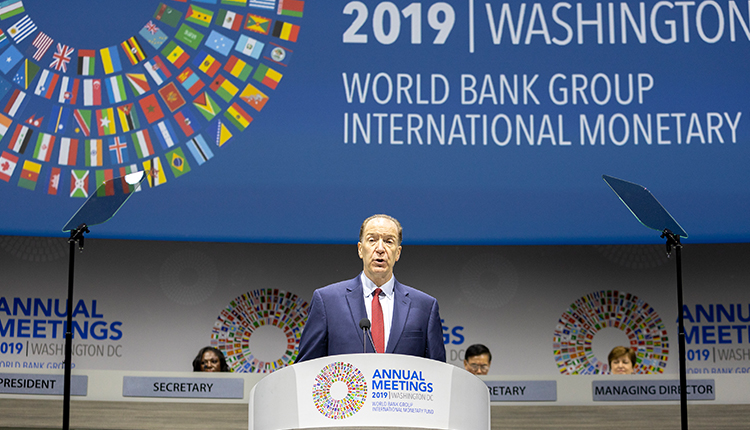Egyptian currency devaluation impacts GDP growth rates- World Bank
The local currency devaluation has impacted the real Gross Domestic Product (GDP) growth of a number of countries, including Egypt, David Malpass, President of the World Bank, stated during the Spring Meetings on Friday.
“In countries where currency devaluations occur and inflation is high, it’s hard to really track real growth because as inflation goes up the poor shoulder more and more burdens as they can’t keep up with the rising prices,” Malpass elaborated.
The current state results in real challenges, and to face those challenges, the World Bank and the International Monetary Fund (IMF) have both worked with Egypt through the past years to develop a firm program in terms of the private sector, Malpass added.
The deprecation of the currency impacting some countries’ GDP growth is the byproduct of these countries’ debt being denominated in US dollars, weakening the currency, making both the debt burden and the debt service burden more costly to the people.
“We’ve encouraged the level playing field between state-owned industries and the private sector. This would then open the doors not only to more investments but to more innovative investments and would help the country navigate the ongoing challenges,” Malpass said.
Developing countries, including Egypt, are in great need to establish a macro framework through, in which fiscal, monetary and currency policies all work to create stability, Malpass mentioned.
“The advanced economies are slowing down and not sharing very much in terms of capital with the developing countries. So, developing countries will have to adjust their economies to make the best out of the limited resources available through fiscal discipline,” Malpass concluded.
Malpass’s remarks came during the International Monetary Fund (IMF) and the World Bank’s Spring Meetings, which were held on Friday in Washington DC.
The World Bank’s Board of Executive Directors has approved a new Country Partnership Framework (CPF) for Egypt in March, with finances reaching seven billion dollars for financial years 2023-2027.
The fiscal pressures and valuation effects resulting from the devaluation of the Egyptian pound are predicted to increase Egypt’s debt-to-GDP ratio to 95.5 percent by the end of the current FY2022/2023.


